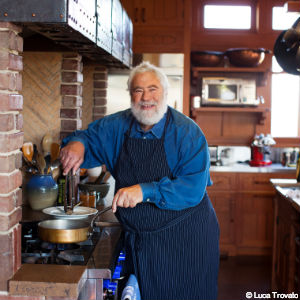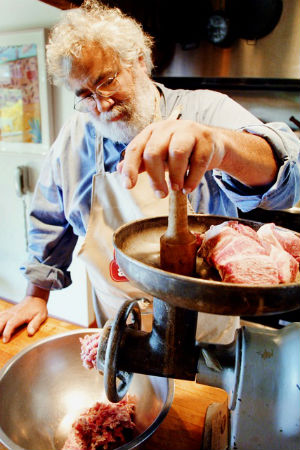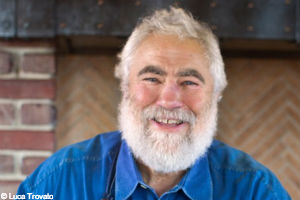1. In what ways did your time as a graduate student at UCSC help you prepare for your later endeavors?
It was the opportunities that UCSC offered me above and beyond the lab. It was all about seizing those opportunities that came along. My social circle as a graduate student was mainly the biology department. I became more involved with the colleges when a wine tasting course was offered at Crown College, which was an opportunity that I could not pass up. It was an amazing experience. It was the early 1970s so we were able to try some great wines—that were also cheap. For me though, my connection to Kresge was the most important. I started getting involved with Kresge before it was even officially a college. I joined a group of students on the college planning committee and I eventually volunteered to cook for a weekend retreat the committee was having at a local Boy Scout camp. Eventually I found myself designing and running a restaurant at Kresge in a converted married student apartment. I wasn't allowed to pay myself, though, because as a TA I was not allowed to earn over a certain amount, but I hired my girlfriend at the time so we were able to support ourselves that way. I was involved with the restaurant, called Fat Albert's Rotunda, for a six month period and let's just say my work in the lab was put on hiatus. One day, my advisor at the time, Chuck Daniels, asked me "Are you ever going to graduate?" Needless to say I did.
The discovery of my entrepreneurial instinct was accidental and it came from these outside interests. My family ran a small business and as a child I hated it; I had to work there during the summer. One of the reasons why I became a scientist was so that I didn't have to go into business! But sometimes opportunities cross your path in unexpected ways. For example, after my PhD I did a five year post doc in London doing cancer research. My girlfriend and I started to make our own sausage because we didn't like British sausage—it was pasty and dry because they use too much bread. I really enjoyed doing that. I eventually did get a tenure track position at the National Institute of Health (NIH), but I wasn't that happy there so I eventually got a postdoc at Berkeley. I should have known the writing on the wall for my academic career when the funding dried up at Berkeley; I realized then that I was a better cook than scientist. I became the chef at Poulet, a restaurant in the area, where I learned that I was not employable so I needed to do my own thing—because I didn't want to work for anybody again.
2. In what ways did cooking and your passion for food help you get through graduate school?
Aside from the restaurant, I did some catering too. It helped financially, a little, of course. These other opportunities took me out of the insular nature of graduate work. It got me in touch with the real world and these extracurriculars allowed me to take advantage of the opportunities found in the non-campus community surrounding the university.
3. It’s 9 o’clock on Friday night, where would we be most likely to find you and what will you be doing?
Back then we had a wonderful typical Friday. The Catalyst was a happening place and a group of us would go there for happy hour in the late afternoon, grab a bite to eat and then come back. Nowadays, you will most likely find my on a Friday night feeding my dog and watching my mystery shows on PBS.
 4. You have written 11 cookbooks and have even more authored research papers on the topic of breast cancer. Who’s easier to deal with: cookbook editors or journal editors?
4. You have written 11 cookbooks and have even more authored research papers on the topic of breast cancer. Who’s easier to deal with: cookbook editors or journal editors?
I never had much contact with journal editors. Sometimes your papers would get rejected and you weren't given a reason or any feedback. Cookbook editors are much more on your side—they have a publishing contract with you so they want to help get your book to a place where they can sell it and make money. I didn't really like to write until I started writing the way I talk. Academic writing doesn't really allow for that because it is so stilted.
I am still interested in what I researched, though. I researched progression, which is how a tumor goes from being controllable with hormones to malignant. The science section of the New York Times is pretty good and I like to read about new developments in the field. I am happy that other people are still researching this topic.
5. Any last words of advice for current grad students in biology?
The best science inspiration doesn't come from the lab, it comes from the conversations that you have at the pub. Don't ignore all the outside activities a university provides and get involved.


